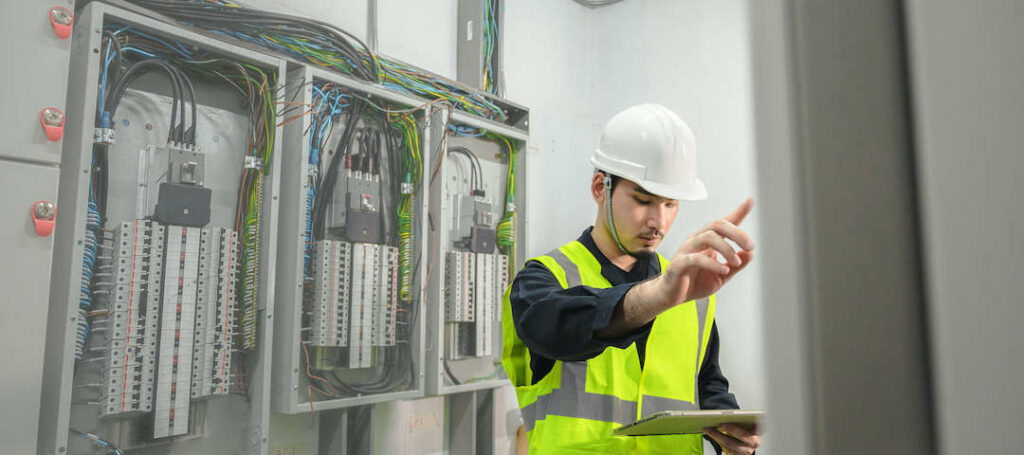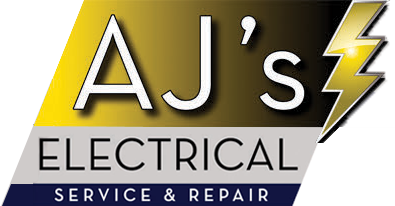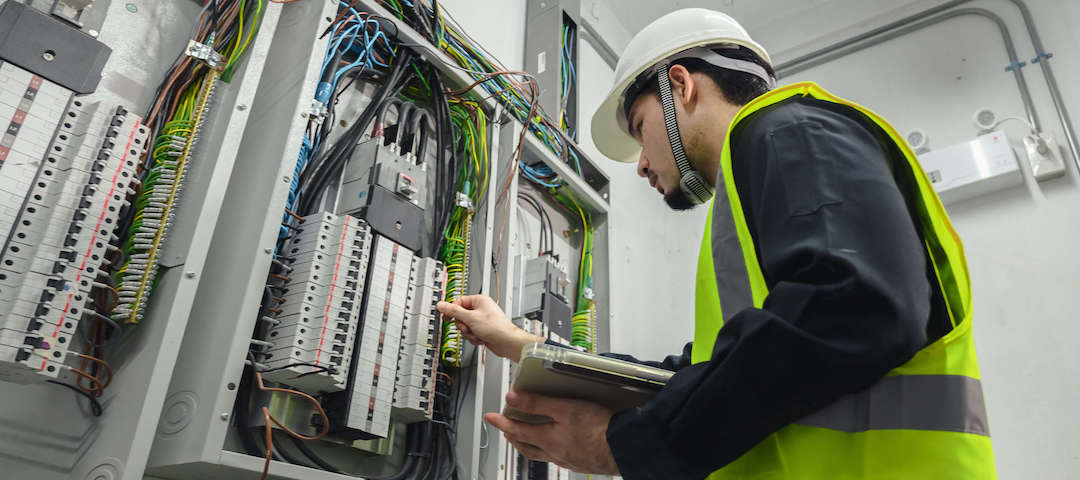An electrical inspection looks to ensure that existing and newly installed electrical components are safe, code compliant, and being used for their intended purpose. Whether you’ve built a new home, are purchasing an older home, or have done some DIY work, electrical inspections are always necessary. These short visits can save your home from potential fires, and prevent your family from ever having to experience shock or electrocution.
So what does an electrical inspection look for exactly?
- Electrical panel
- Wires
- Junction boxes
- Ground fault circuit interrupters
- Outlets
Electrical panel
Your electrical panel will be inspected carefully as this is the main source of power in your home. Breakers are designed to prevent currents from reaching unsafe levels. But when your breaker is not functioning properly, the system will struggle to keep electricity flowing safely. An electrician or inspector will ensure that breakers are properly sized for the current they hold, and are showing no signs of possible corrosion or overheating.
Wires – Electrical Inspection
An inspector will look for unprotected wires inside, as well as damaged or frayed wires outside. They will also check that the wires being used are the correct ones. This is because wires differ based on where they will be used. Underground cables are different from cables running within a home.
Junction boxes
Junction boxes also need to be accessible and visible for inspectors. A junction box, also known as a jbox, is an enclosure housing electrical connections. These boxes cannot be buried beneath insulation and drywall. It is also vital that they have covers.
Ground fault circuit interrupters
Ground fault circuit interrupters are often placed in areas where there is water, like a bathroom, kitchen, or basement. These devices are designed to power off when overloaded to prevent electrocution. Inspectors will make sure they’re wired correctly, and also keep an eye out for loose switch plates.
Outlets – Electrical Inspection
Outlets will be inspected for faulty wiring and loose switch plates. A proper outlet installation would ensure a proper distance between all outlets to prevent homeowners from having to use dangerous extension cords.
Proper wiring grounding
Your inspector will check that all wiring has proper grounding back to the electrical panel. Since electrical current naturally flows to the ground, it is safer that the electricity be pushed through a ground wire. If your wiring is not flowing to the electrical panel through the ground, this is extremely dangerous and your risk of electrocution is higher.
If you have an electrical inspection coming up, or are wanting an electrician to examine your home prior to booking yours, reach out to AJ’s Electrical. Our trusted team of electricians have provided countless inspections for our clients, and we look forward to servicing your home next! Contact us today.


